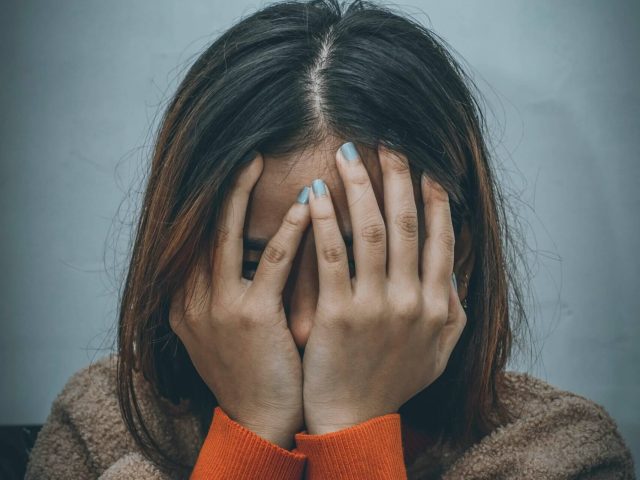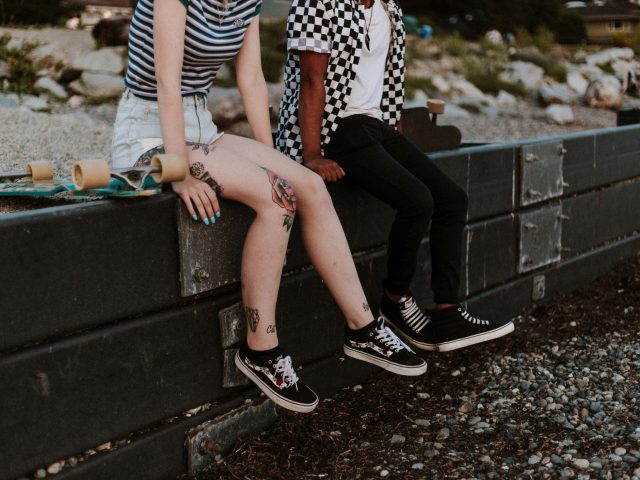I never knew the value of self-love until I suffered the extreme cost of lacking it.
I was six months into my relationship when I knew my boyfriend was “the one.” Our connection was intense from the start, and I’d opened up to him more than with any previous partner. In fact, I shared it all, even the stuff I’d typically take care to hide—my insecurities, my fears, my failures, and doubts. The ugly, scary monsters you keep tucked away underneath your bed or on the sacred pages of your diary.
After I bared all of my secrets to him, my boyfriend did something shocking. With a loving smile, he gave me what I’ve craved my entire life, what no one else, least of all myself, could ever provide: acceptance.
He cradled each of my loathsome insecurities or monsters in his arms, lulled them into a sound sleep, and then turned his attention to me—the real me, pure and unencumbered, shining beneath the mess. He held my hand, kissed me, told me he loved me, and I was convinced this person was my soulmate.
Anyone who struggles with self-criticism knows that life can be a wearisome journey. Most days, the storm of “not good enough” threatens to demolish the home we’ve built on the shifting sands of personal achievement and the opinions of others. Here, there are always ominous skies looming overhead.
This was the first time in my life that it seemed that I had finally come out on the other side. I’d never felt as beautiful, as confident, and as cherished as I did at the beginning of our relationship. His “acceptance” of me shone like a rainbow across a sky that had magically brightened. Basking in its blissful light, I texted him:

My boyfriend’s feigned compassion turned out to be a more powerful high than I could ever have imagined. It kept me in our relationship even when his behavior no longer matched his words, when it subtly shifted from caring to malicious. But the entire time he was deliberately harming me, he continued to smile and hold my hand so I couldn’t see that he was really tearing me down instead of building me up. Until the very end, I was blinded by one thing: his seemingly incredible love for my imperfect self.
Learn More About Sneaky Behaviors That Are Actually Unhealthy
Over several years, I paid the price for needing someone else to inject me with confidence and worth the same way others pay their monthly rent: automatically, a necessary cost of living your life. My lack of self-love didn’t cause my (now ex) boyfriend to do what he did, nor was it some self-deficiency that made me responsible for his actions. It was a vulnerability—a serious one.
When you depend on someone else to satisfy these critical needs, you give away enormous power and control over your basic wellbeing. Even in the healthiest relationship, you’re still leaving your self-image up to your partner to mold. When their selfishness, carelessness, or changing whims inevitably get in the way, your former doubts will return. Indeed, you’ll find they never left; they just wait until something happens to substantiate your low opinion of yourself and resurface just in time to magnify a minor disagreement into a full-blown fight.
If your partner has harmful intentions, the damage can be catastrophic. Your insecurities, perceived failures, and flaws transform into something that harms you. Despite appearing to be understanding, a toxic partner will carefully collect these vulnerabilities and store them as tools to pull out whenever they need to defend their hurtful actions, throw you off the scent of their lies, coerce you into doing something that goes against your values, or further deflate your self-esteem when they feel threatened. The resulting injuries vary from relationship to relationship. In my case, the insidious manipulation, betrayal and psychological terror shattered my sense of self, crossed boundaries, and almost took my sanity and my life.
Learn More About How To Tell if You’re in an Emotional Abusive Relationship
What’s more, I used my own inadequacies as weapons against myself, too. In the fog of this relationship, I listened to my reawakened monsters to rationalize rather than question circumstances that didn’t make sense. These deceitful insecurities convinced me that the opposite of what was actually transpiring was true: that “it was my fault.” My other insecurity “You’re not so great” depleted my self-esteem while her brother “Never good enough” reminded me that regardless of how I was treated, I could always do more to be a better girlfriend—more empathetic, more thoughtful, more optimistic.
In healthy relationships, your insecurities or inner monsters won’t look quite as scary; they’re more like cute, fluffy little monsters that nip at your heels every now and then. But in toxic dynamics they morph into formidable tyrants without warning until one day, they’re holding you hostage in your own home.
What saved me? Me. And more specifically, finding a way to build a better relationship with myself. Above all, healthy self-love is honest, which means learning to embrace imperfections alongside strengths. Accepting my whole self is a lifelong journey that will never be over, and it’s worth the effort because it keeps me exactly where I need to be: grounded in reality where I can clearly see things—and people—as they are.
What I wish I’d realized earlier is that self-love isn’t an unrealistic idea—it’s a non-negotiable. And like any nonnegotiable, you don’t let yourself get away with “It’s a nice idea but not for me”—you find a way to make it happen.
As you pledge to #LoveBetter, don’t forget yourself. Abandon tiresome clichés like “You must love yourself before you can love someone else” that begs the question, What does loving yourself have to do with loving another person? Most of us already do this too well, tending to the needs of our partners, children, even pets without a fleeting concern for ourselves.
Instead, ask yourself how you can start treating yourself better, celebrating your successes without criticizing them in the same breath. Forgiving yourself for being an imperfect human being who makes mistakes. Flaunting the “ugliest” part of you that causes the greatest pain. Ask yourself how you can be your own rainbow.
I’ll let you in on a hard-won secret—you already are.
If you feel you are experiencing relationship abuse, or if you just have questions about your relationship, contact the National Domestic Violence Hotline via their website, or by calling 1-800-799-7233. Or chat with a peer using LoveisRespect.org’s confidential chat.
Browse by Category

How to Have Healthy Holiday Conversations with Family (and Prep Your Partner)
The holidays are a time for family, good food, and—let's be real—sometimes intense conversations. Whether it's politics, lifestyle choices, or…
How to End a Summer Romance or Friendship
Summer flings and friendships can feel fleeting. So why is…
Celebrate Your Freedom: Independence in Relationships
As Independence Day rolls around, let’s chat about something just…
Practicing Equality in Your Relationships
Equality is one of One Love’s 10 Signs of a…
How to Practice Allyship Using the 10 Signs
During the month of June the United States observes both…














